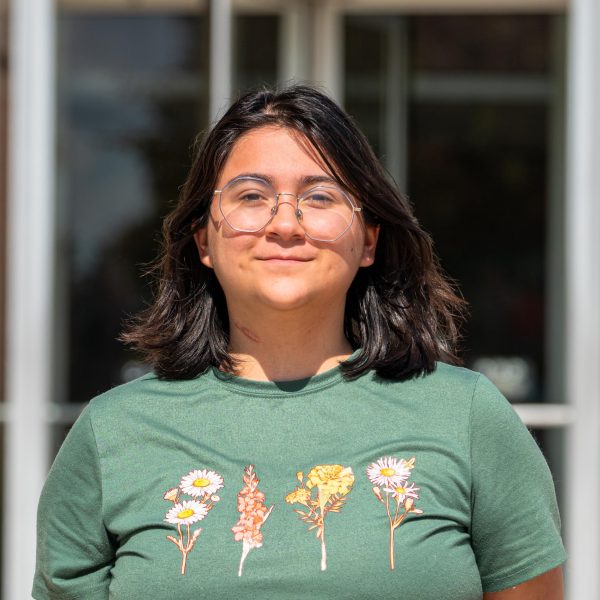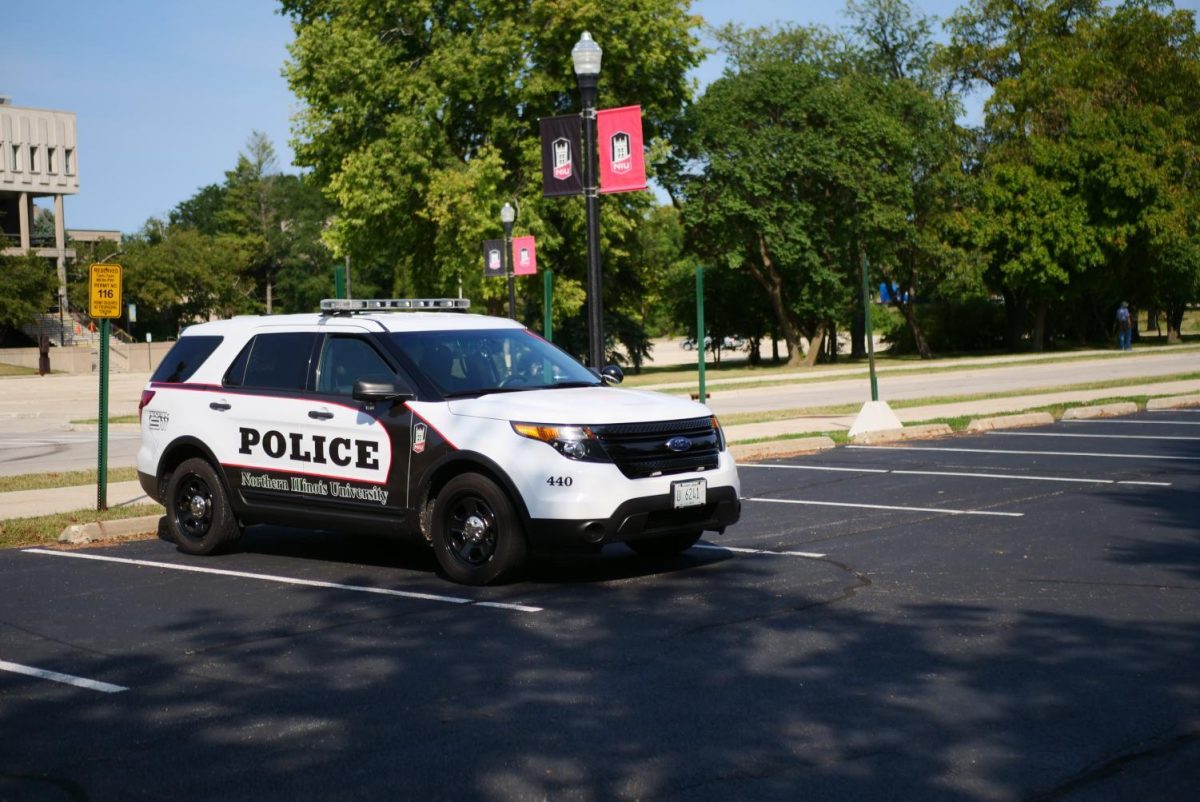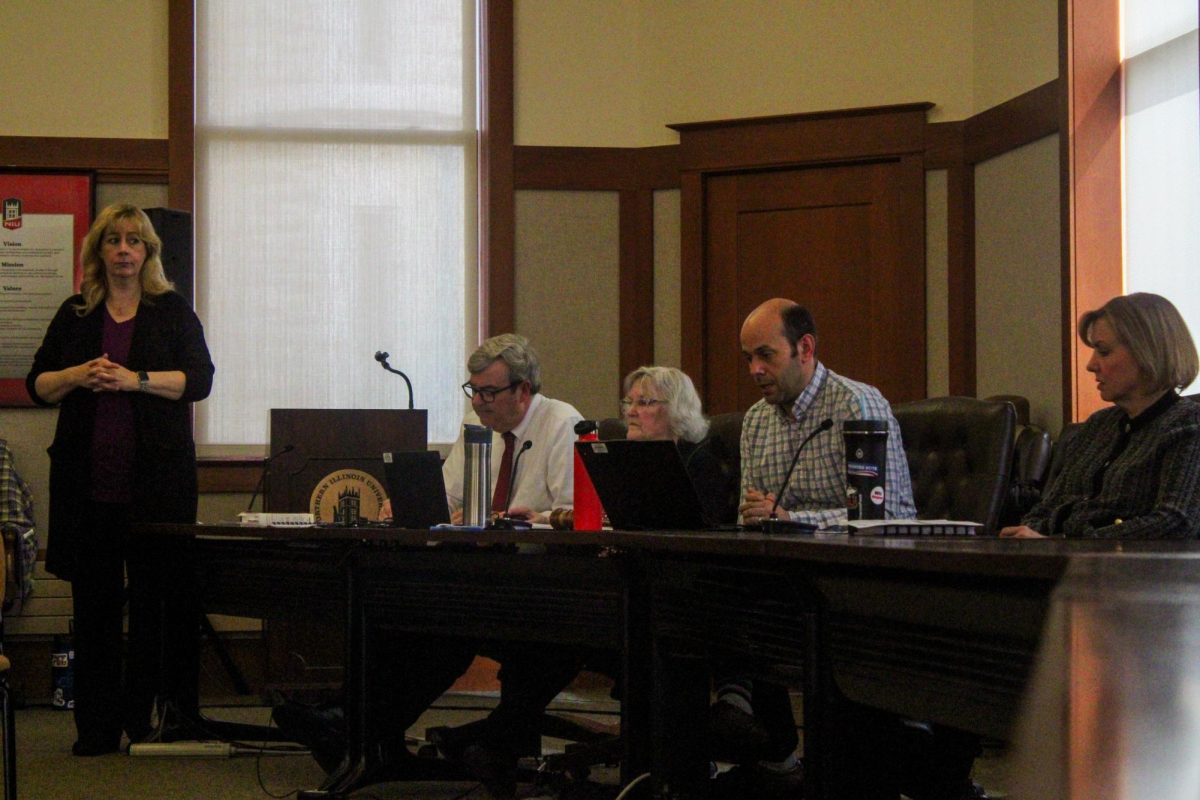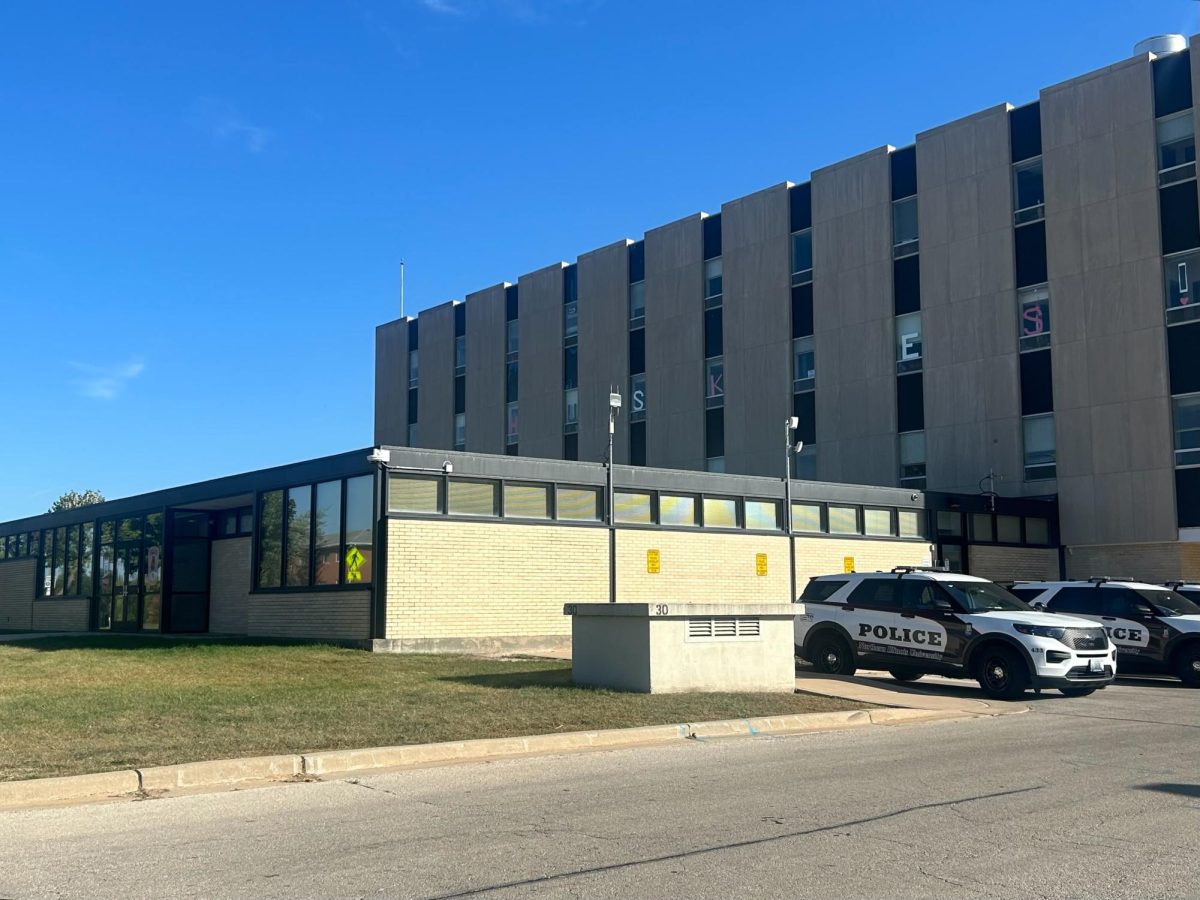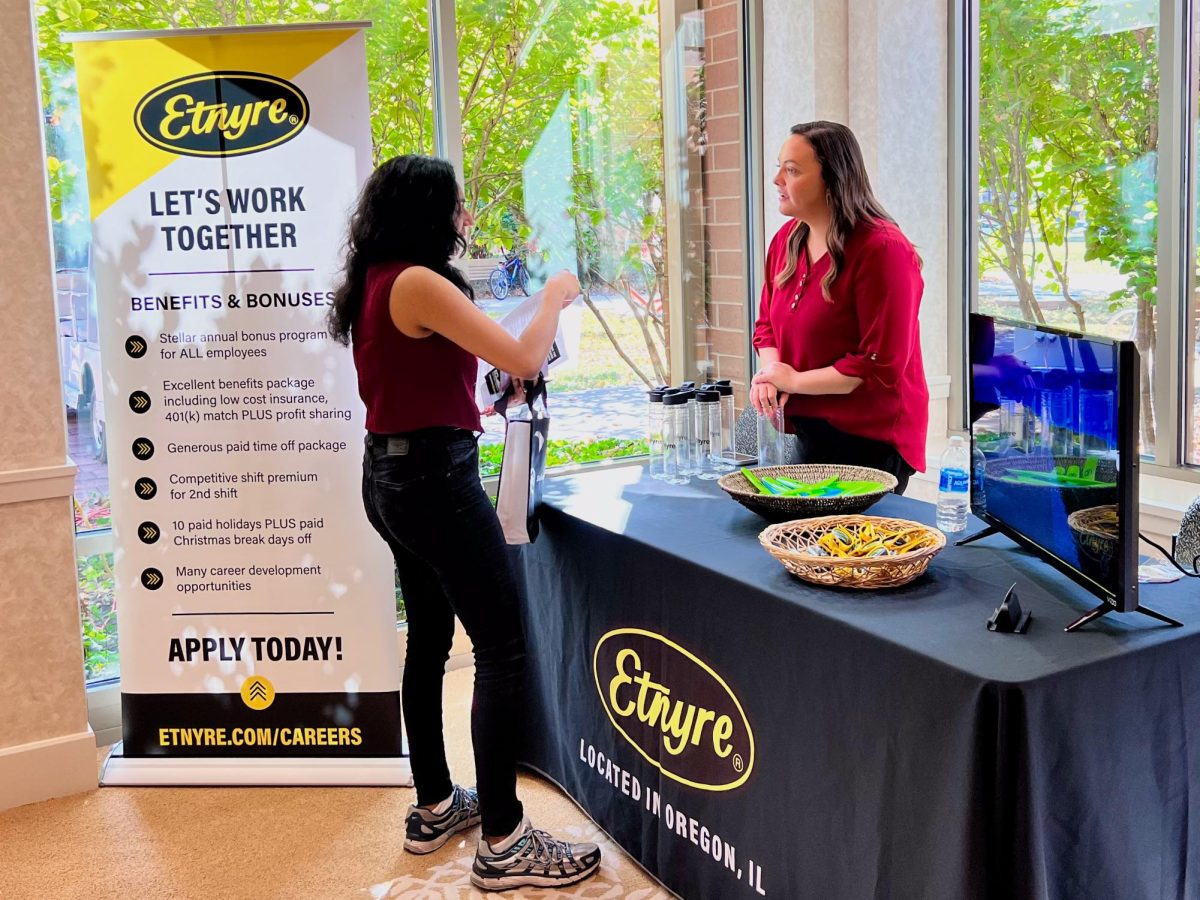DeKALB – Edible Campus is a program at NIU that converts empty spaces around campus into areas that grow food. You may have even consumed this food before in the dining halls.
The program was started to address issues such as food insecurity and a lack of locally grown food at NIU, according to the Edible Campus website. Funding to start the program came from the Small Business Association Congressional Funding Grant through the office of Senator Dick Durbin.
Edible Campus had been under the Division of OERD (Outreach, Engagement and Regional Development), but has recently shifted to the office of Campus Sustainability.
It was first started in 2023 by assistant director for food systems innovation, Bryan Flower, who has recently left NIU to pursue new opportunities.
Laura Fehling, the project coordinator for Edible Campus, believes the program helps deal with issues of food health and sustainability at NIU.
“We are trying to grow healthy, locally grown, sustainably grown food to provide to our students,” Fehling said.
Food is grown all throughout campus in garden beds, aeroponic towers and a newer addition, the hydroponic container farm outside of Anderson Hall.
Last year, over 3,500 pounds of produce were harvested. Fehling anticipates around the same amount this year.
The food grown in the Anderson Market Garden, located behind Anderson Hall, along with the hydroponic container farm, is primarily sold to campus dining in order to provide locally grown food to students. Food from the gardens is also donated to the Huskie Food Pantry.
The garden beds near Founders Memorial Library and Neptune Residence Hall are spots where students can go pick food at no cost. The locations of all the gardens can be found on the Edible Campus website.
Over the last few years, Edible Campus has collaborated with NIU’s Student Meal Prep Program. They previously provided fresh produce for students to cook and pack meals for themselves to take home.
Fehling explained the program is currently paused as Edible Campus reorganizes after the departure of Flowers.
“Because of our little shuffle there after Bryan (Flowers) left, we’ve had some changes, and we’re hoping to restructure that program a little bit.” Fehling said. “So, I know people might be looking for it this fall, but because of these changes, I don’t know exactly when it’s going to start up again.”
A new course with garden involvement was introduced this fall, in collaboration with the Honors Program. The Justice Challenge is a 10-week course that strives to teach students about sustainable food systems and give them hands-on work in the gardens.
“It’s not a normal on-the-books, every year course — it’s the Justice Challenge course. And so, as part of that, the focus on that is sustainable agriculture,” Fehling said.
Edible Campus is always open for volunteers. They also have a few employment opportunities, with two to four students employed each year.
Job postings to work at Edible Campus get advertised through Huskies Get Hired when available. Hiring typically occurs during the spring. Work for both volunteers and employees typically consists of tending to the gardens throughout campus.
Fehling is still in the process of establishing regular volunteer opportunities, but she encourages students to reach out to Edible Campus through email at [email protected] for more information on volunteering.
“I think Edible Campus is just bringing new opportunity for students to make connections that they didn’t have previously, and to learn about local, sustainable food systems, and get kind of these hands-on workforce development opportunities,” Fehling said.



